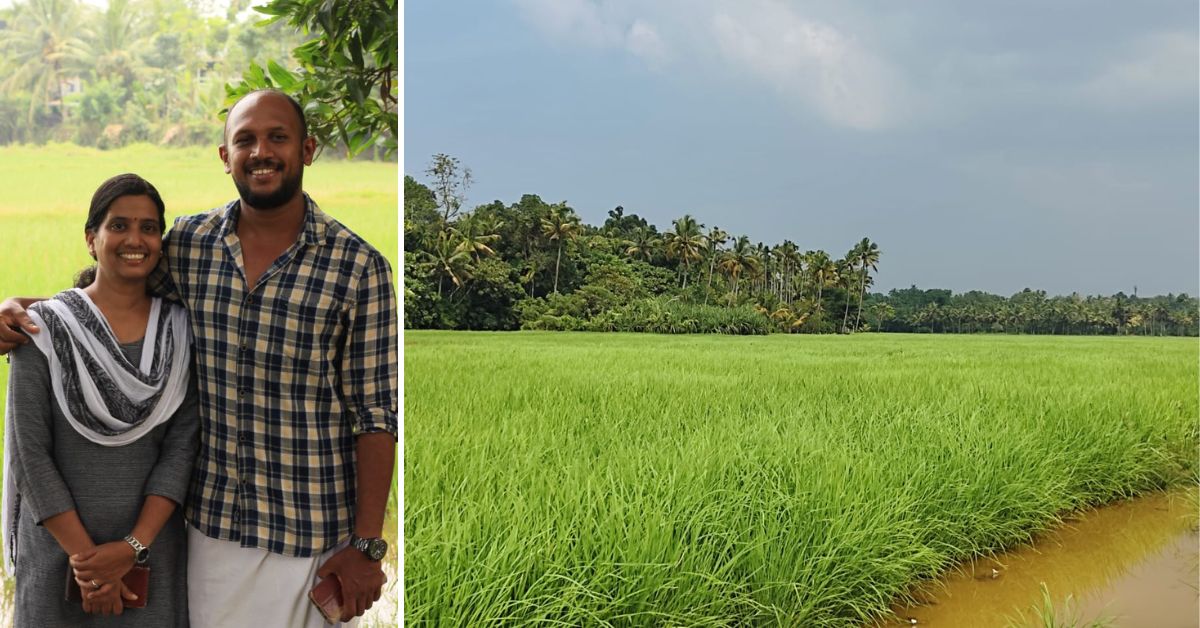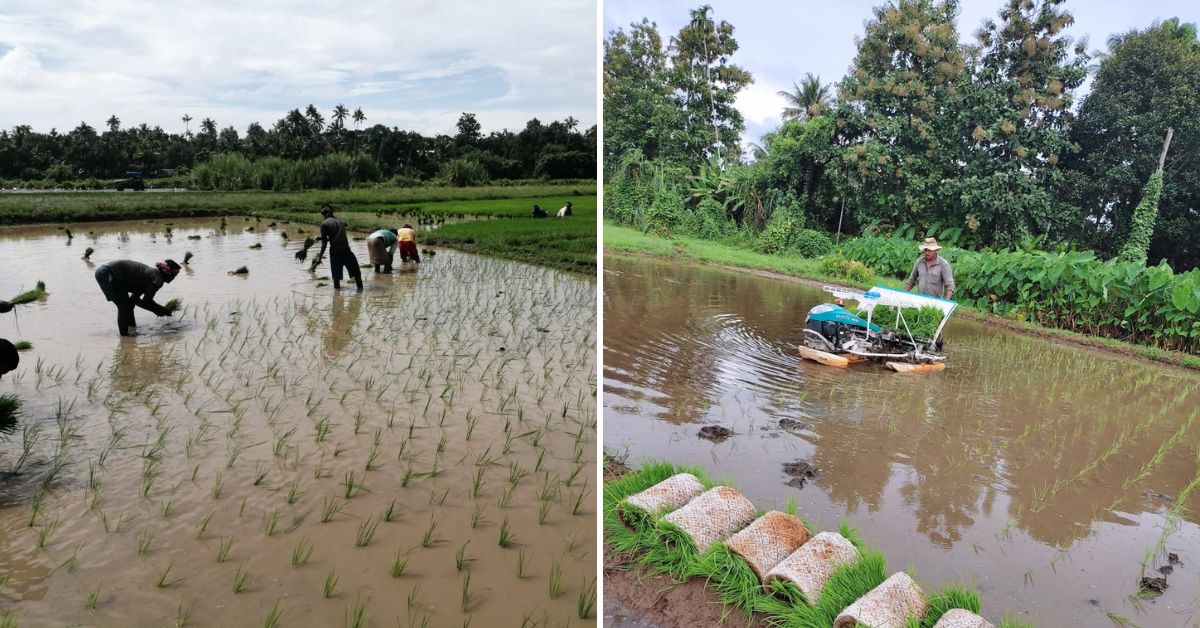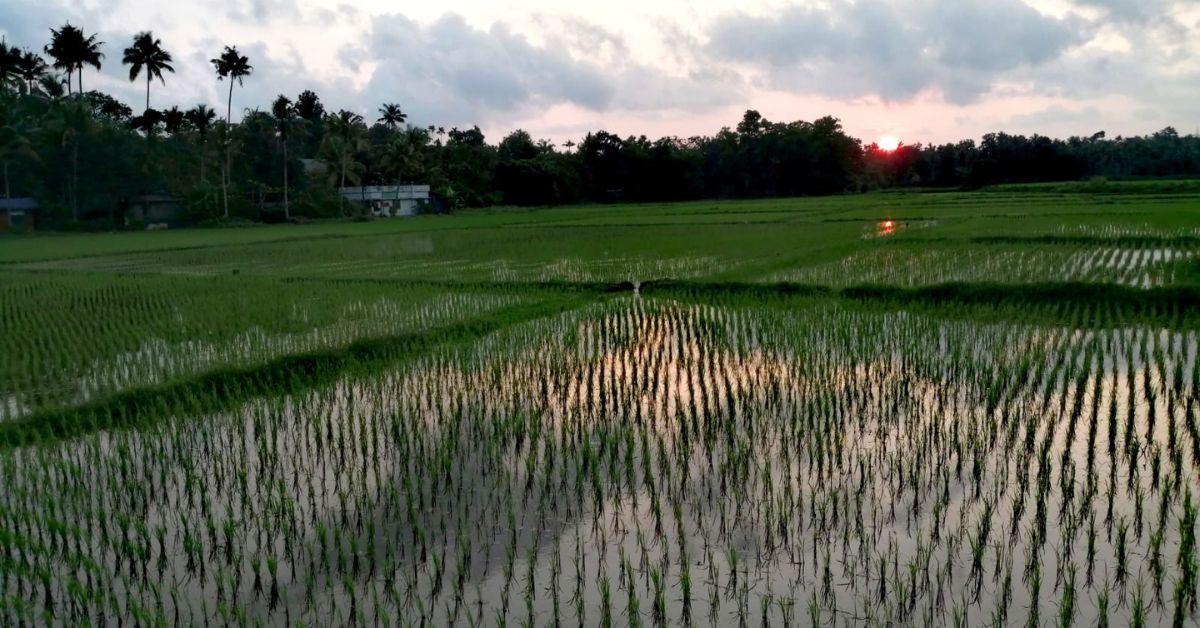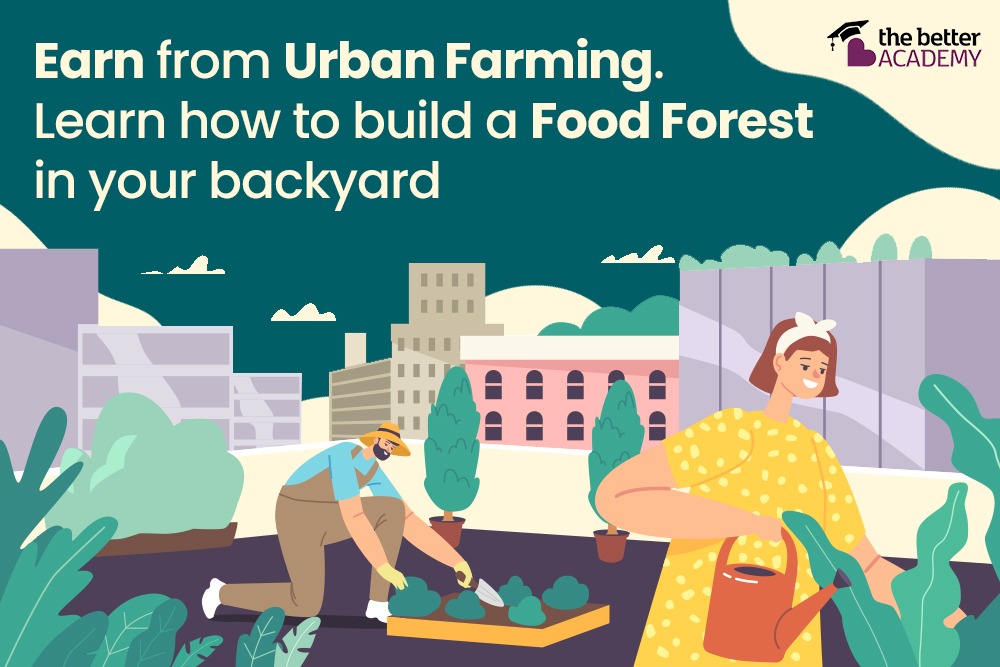[ad_1]
Whereas dwelling in Mumbai, Pavithra A and her husband Mohammed Rinas from Kerala by no means loved the fast-paced metropolis life. They missed being with nature and gaining access to clear and wholesome meals. The couple longed to return residence and had been at all times searching for the proper alternative.
That’s when Pavithra got here to find out about a venture by the Salim Ali Basis in Kerala. She grabbed the chance to maneuver again residence. Thus in 2016, she left her HR generalist job at a multinational firm to affix as a venture coordinator for the muse.
Inside a 12 months, Rinas stop his job as a mechanical engineer within the oil and gasoline business to affix his spouse.
The couple labored for the muse’s venture in Vellangallur panchayat in Thrissur, Kerala. It was their flagship venture to advertise aware and self-sustaining improvement within the area.
After engaged on the venture for a while, the couple was motivated to take up natural farming. Quickly, they leased round 15 acres of barren land in Vellangallur and turned it into an natural farm cultivating conventional rice varieties.
At the moment, they’ve expanded their cultivation to twenty acres and are rising round 15 tonnes of paddy on common yearly. In addition they promote value-added rice merchandise like puttu (logs of rice flour steamed with coconut) powder, flattened rice, and many others.
Their journey from the company world to the social sector, and finally taking on natural farming didn’t occur in a single day!
A mission to advertise clear meals

Their earnings was decreased whereas working for the muse. Pavithra earned a small wage whereas Rinas principally labored at no cost. However they are saying they had been the happiest once they stepped into social work.
“The shift wasn’t straightforward, however I don’t have any regrets,” Pavithra tells The Higher India. “I hated working in air-conditioned places of work, and I’m now comfortable that I get to work on the sphere, that too for a social trigger,” she says.
In accordance with them, this expertise opened an entire new manner in entrance of them that finally impressed them to take up agriculture.
“As a part of the venture, we labored collectively to create consciousness about natural farming amongst farmers. In addition to, Rinas helped the farmers with the technological and machinery-related elements like establishing drip irrigation methods, aquaponics, and many others,” explains Pavithra.
Engaged on the venture itself was a studying expertise for the couple who realised the significance of rising clear meals.
“Whereas working in Mumbai, I used to examine farming over the web. However I actually received occupied with it solely after engaged on the venture. Pavithra additionally shared the identical curiosity. So, we each determined to take up paddy cultivation as we Keralites eat loads of rice, and subsequently it’s important to domesticate it organically, “ explains Rinas.

Nevertheless it was simpler mentioned than carried out. Though they determined to begin farming on 15 acres of land, Pavithra says, “We didn’t manage to pay for to kick begin it. So, we needed to pawn some jewelry from Rinas’s mom, and that’s how we began our farming journey.”
The land was barren and was left unused for a number of years. It was the primary problem they confronted whereas beginning out farming.
“Each of us didn’t have prior expertise in farming and we figured it out finally. However natural cultivation of conventional rice is tougher than inorganic strategies because it requires extra manpower. Due to this fact cost-efficiency is a problem,” provides Rinas.
One other problem they confronted is discovering a market area for natural produce. He provides, “We will’t promote natural produce as simply because the inorganic produce, as a result of there isn’t sufficient market area for our merchandise.”

The couple centered on conventional rice varieties as a result of they believed that it’s extra sustainable and nutritious than the hybrid ones. “We additionally felt that it’s important to carry nutritious and clear meals into the market,” says Pavithra.
Rakthashali, Kuruva, Thavalakannan, Kunju Kunju purple rice, Njavara, Kodukanni and Pattambi are among the conventional rice varieties they’ve cultivated to date. “Amongst all of the varieties Kuruva and Kodukanni have been probably the most yielding,” says Rinas.
He provides, “The Rakthashali rice is a standard selection with a number of medicinal properties and has an enormous demand out there. However its yield is much less when in comparison with different varieties. When different varieties yield round 1,200 kg on a median, Rakthashali yields round 700–800 kg per acre.”
In accordance with him, “On common, we might domesticate round 15 tonnes of paddy from 20 acres.”
Although they had been capable of domesticate round 1,500 kg per acre within the first harvest in 2018, the next years had been a bit difficult. “On account of floods, cyclone Ockhi, and the pandemic-induced restrictions, it was very troublesome for us to discover a tempo. However this 12 months we’re hopeful because it has been going easily,” says Pavithra reminding us that it’s nonetheless unpredictable because of the drastic change within the local weather.
Pavithra and Rinas not solely develop rice, but additionally make a number of rice-based value-added merchandise corresponding to flattened rice, rice powder, and puttu powder.
“We promote Kuruva rice for Rs 90 per kg and its rice powder and puttu powder for Rs 140 per kg. We additionally make the identical merchandise out of different rice varieties like Rakthashali, on request,” says Rinas, including that they promote their merchandise by means of social media.
For extra info and enquiries, you may contact them at +91 95446 77707
Edited by Pranita Bhat; Picture credit: Pavithra A
[ad_2]

